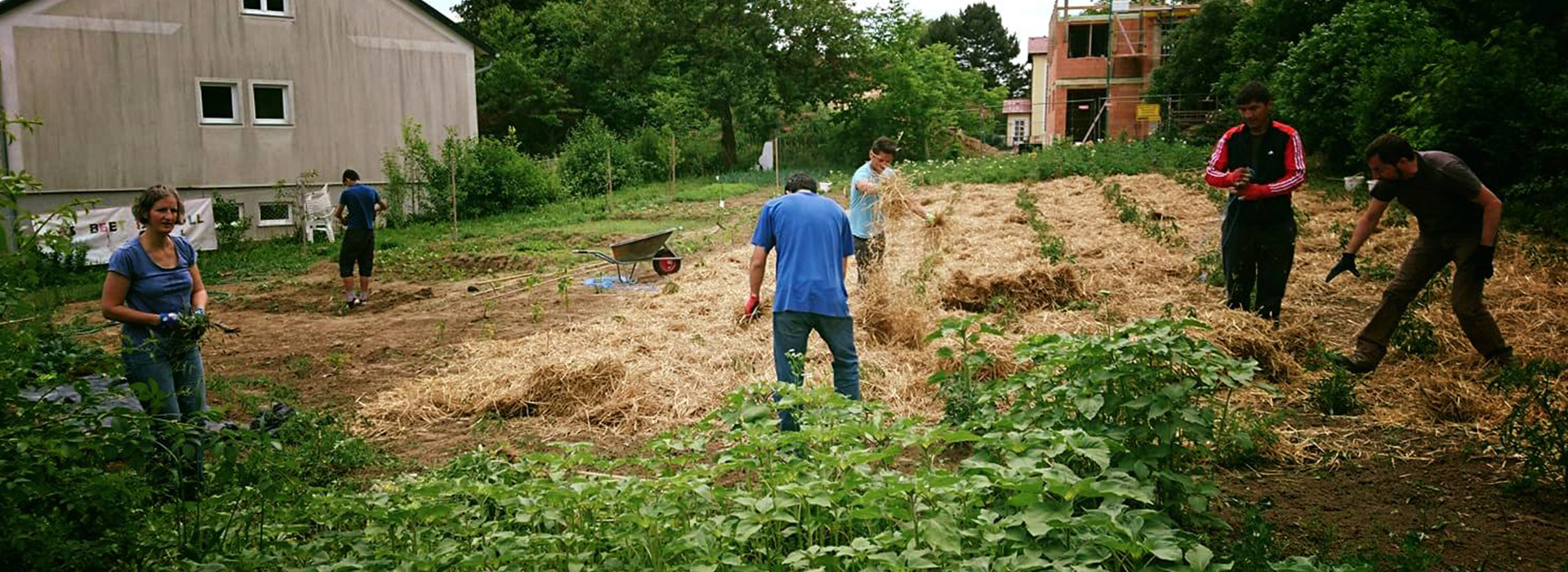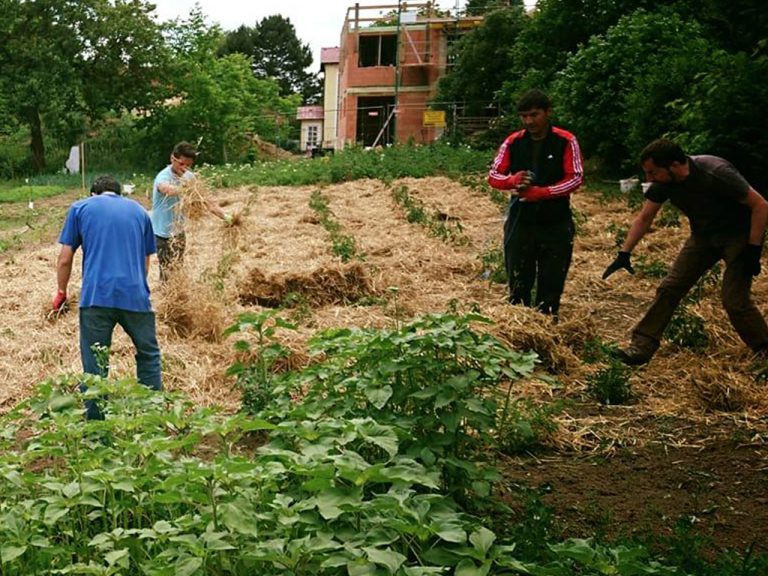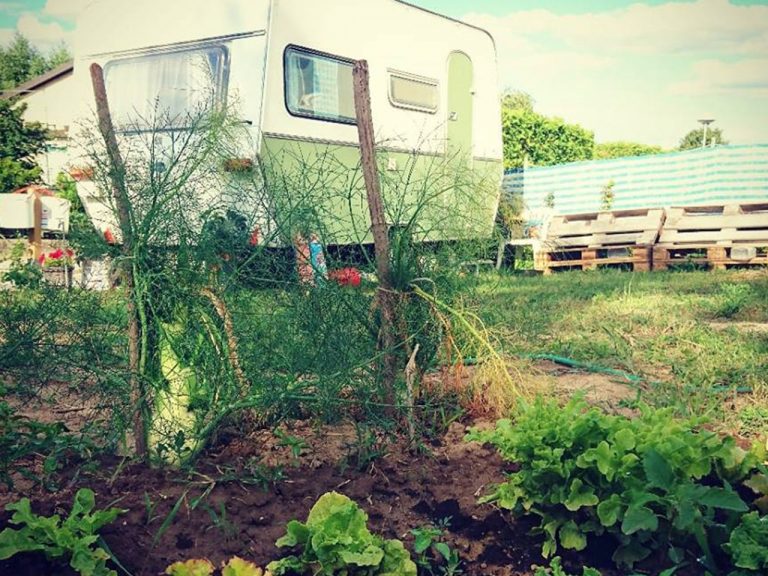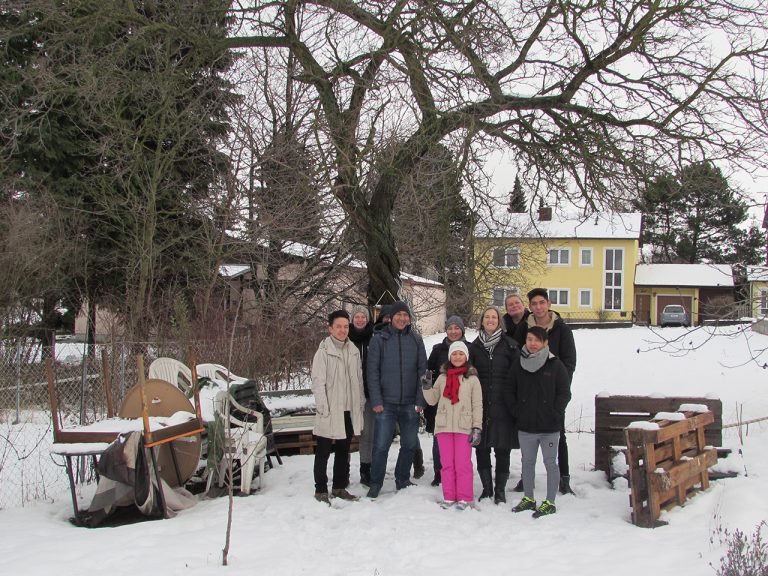Details of the initiative
The main aim of the organisers to start this project was to get to know the people who will be living in the city with them. To make the “fear” of the local Austrians redundant of all the new “strangers” and connecting both groups was important. Migrants should have a useful activity where they could grow their own healthy food, to save money in the long term. Because of the interest to sew and to garden together, mainly two women started the whole project, without any financial or governmental support. Some migrants were interested and many supportive people donated seeds, plants and tools because they wanted to contribute. Soon a field for gardening got leased to the group for free by a supporting woman. Everything was shared and treated as common goods – no private plots exist. The work and the yields are shared in a fair way amongst those who are participating.
The two women who started the initiative and some more helpers developed a real friendship with the migrants and wanted to care for them and ensure a good start in this new country. They also started to run German classes for free, informally helping out with legal questions and helping them to find accommodation. Furthermore, they included the migrants in the open sewing sessions at their homes. These sessions are open for everybody who is interested. Upcycling products are created together.
Many people wanted to support this project with donations, useful for the garden, like plants and tools, or the sewing, like fabrics and old clothes. They were happy to donate things they don´t need anymore, which would be too good to throw away. These donated items are used in the garden, the sewing activities or are distributed among the migrants. As the amount of donations has risen, they started the “center for redistribution”. Because of this, very little money is needed for maintaining the project. They try to not buy anything additional and use what they get. There are also no cooperation partners, like the local government or local associations. Only some informal support was received now and then (plowing of garden area, plant donations from farmers,…).
With the selling of sewed products, migrants can get indirectly rewarded (=without financial payment) for the time and passion they bring into the project. From time to time there are events where their products are exhibited and sold at typical markets like the Christmas market of the city. In Austria non-profit associations are only allowed to sell small amounts of products without making a profit in the long run. Money has to be reinvested into the association to reach its goals. Therefor bills for train tickets, German classes, school materials and further education and other useful expenses, are covered with this money by the association for the migrants.
The founders and the most interested migrant gardener are managing the project without hierarchy. They are responsible for the communication, translation and planning of next steps but they are also gardening and sewing together with all the others.
The way to success from the organisers view was:
- Simple meditative work, where no talent and not much language is needed
-
Community – a feeling of belonging
-
Effort and passion of volunteers – no special training needed
-
Emphasis on the need to participate
-
Fun
Migrants are continuously contributing because they have developed a feeling of belonging to that group and they have a lot of spare time, as they are not allowed to work in Austria by law, until they get an officially accepted refugee status.
Lessons learned from migrants / advice to other migrants:
Be curious and open to try such initiatives/possibilities
Learn the local language.

 English
English  Deutsch
Deutsch  Español
Español  Svenska
Svenska 


